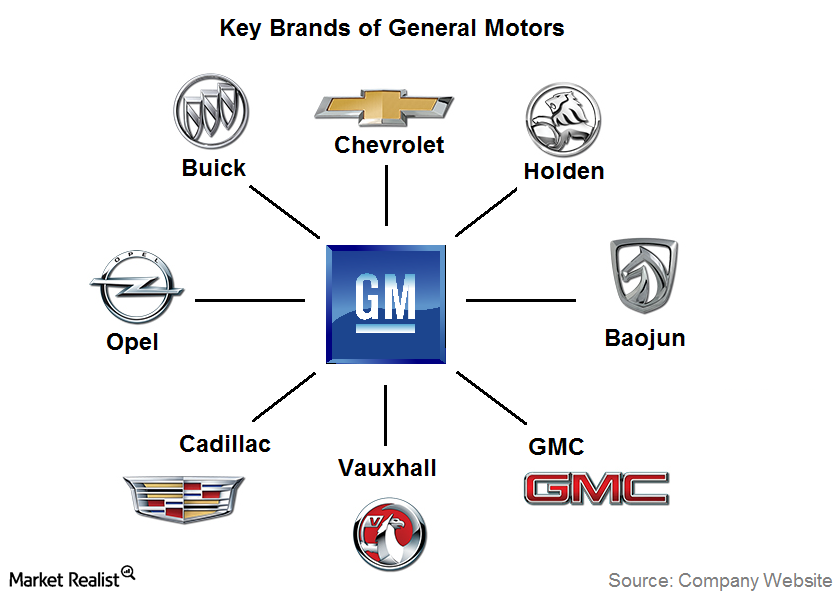The Future Of Electric Motors: Diversifying Global Manufacturing

Table of Contents
Geopolitical Shifts and Supply Chain Resilience
The concentration of electric motor manufacturing in certain regions presents vulnerabilities. Diversification is crucial to mitigate risks associated with geopolitical instability, trade wars, and natural disasters. Over-reliance on specific geographic locations for key components creates significant fragility within the electric vehicle supply chain.
- Increased reliance on specific raw materials (rare earth minerals) necessitates securing diverse supply sources. The dominance of a few countries in the mining and processing of rare earth elements, essential for many high-performance electric motor magnets, creates a chokepoint. Diversifying sourcing to multiple countries and exploring alternative materials is paramount.
- Regional trade agreements and tariffs impact manufacturing costs and accessibility. Trade disputes and fluctuating tariffs can significantly disrupt the flow of materials and components, impacting the cost and availability of electric motors. A geographically diverse manufacturing base can help buffer against these uncertainties.
- Developing robust logistics and transportation networks is paramount for efficient supply chain management. Reliable and efficient shipping routes, warehousing, and distribution systems are vital for timely delivery of components and finished products. Investing in infrastructure and diversifying transportation modes can improve resilience.
The global nature of EV manufacturing necessitates a resilient supply chain capable of overcoming political and logistical challenges. Diversification reduces reliance on single-source providers and strengthens the overall sector. A resilient electric motor supply chain is essential for the long-term success of the EV industry.
Technological Advancements and Manufacturing Innovation
Advancements in motor design, materials science, and manufacturing processes are driving efficiency and affordability. Continuous innovation is key to enhancing the competitiveness and sustainability of electric motor production.
- High-efficiency motors (permanent magnet, induction, etc.) are constantly improving energy density and reducing costs. Ongoing research into motor design and materials leads to improved energy efficiency and reduced manufacturing costs, making electric vehicles more attractive to consumers.
- Automation and robotics are transforming production lines, improving speed and quality. Automated assembly lines and robotic systems increase production speed, reduce human error, and improve the consistency and quality of electric motors.
- Additive manufacturing (3D printing) offers potential for customized and on-demand motor production. 3D printing technology allows for the creation of customized motor designs and on-demand production, reducing lead times and inventory costs. This is particularly useful for niche applications or low-volume production runs.
Technological innovation is essential to create more efficient, cost-effective, and sustainable electric motor manufacturing processes. This enhances competitiveness and allows for greater accessibility globally. The pursuit of advanced manufacturing techniques is crucial for the future of electric motor production.
The Rise of Regional Manufacturing Hubs
Governments worldwide are actively promoting domestic electric motor production through incentives and investments. This strategic approach aims to strengthen national economies and enhance supply chain security.
- Investment in research and development to support local innovation and talent. Funding research and development initiatives helps foster local expertise and innovation in electric motor technology.
- Tax breaks and subsidies to attract manufacturers to specific regions. Government incentives can attract foreign and domestic investment in electric motor manufacturing, stimulating job creation and economic growth.
- Creation of industrial parks and special economic zones focused on electric vehicle components. Dedicated industrial zones provide manufacturers with streamlined access to infrastructure, resources, and skilled labor.
Strategic investments in regional manufacturing hubs will foster local expertise, reduce reliance on imports, and stimulate economic growth. This localized production reduces transportation costs and environmental impacts, creating a more sustainable manufacturing ecosystem.
Sustainability and Environmental Considerations in Electric Motor Manufacturing
Sustainable manufacturing practices are essential to minimize the environmental impact of electric motor production. Environmental responsibility is a key factor in ensuring the long-term viability of the industry.
- Reducing carbon emissions throughout the entire supply chain. Adopting clean energy sources, improving energy efficiency, and optimizing transportation routes can significantly reduce the carbon footprint of electric motor production.
- Using recycled and sustainable materials. Employing recycled materials in motor construction and sourcing sustainable raw materials minimizes the depletion of natural resources and reduces waste.
- Implementing responsible waste management practices. Proper waste handling and recycling processes minimize environmental damage and promote responsible resource management.
Environmental consciousness is crucial in the long-term viability of electric motor manufacturing and contributes to the overall sustainability of electric vehicles. Sustainable practices are essential for creating a responsible and environmentally friendly electric vehicle industry.
Conclusion
The future of electric motors is intrinsically linked to the diversification of global manufacturing. Addressing geopolitical risks, embracing technological advancements, and fostering regional manufacturing hubs are key to ensuring a sustainable and resilient supply chain. By embracing sustainable practices and supporting innovation, we can pave the way for a future where electric motors are efficiently and responsibly manufactured globally. The future of electric vehicle technology depends on a robust and diversified approach to electric motor manufacturing, so let's work together to build a more sustainable and secure industry. Invest in the future of electric motor manufacturing – a diversified approach is essential for a sustainable and resilient EV industry.

Featured Posts
-
 Is Marvels Thunderbolts Franchise A Viable Option
May 05, 2025
Is Marvels Thunderbolts Franchise A Viable Option
May 05, 2025 -
 Ufc 314 Ppv Card Changes Prates Vs Neal Fight Cancelled
May 05, 2025
Ufc 314 Ppv Card Changes Prates Vs Neal Fight Cancelled
May 05, 2025 -
 Lizzo And Ozempic Shaun T Weighs In On The Controversy
May 05, 2025
Lizzo And Ozempic Shaun T Weighs In On The Controversy
May 05, 2025 -
 Lizzos Weight Loss Journey Celebrating Her Health And Fitness Goals
May 05, 2025
Lizzos Weight Loss Journey Celebrating Her Health And Fitness Goals
May 05, 2025 -
 Hong Kong Intervenes To Defend Currency Peg With Us Dollar Purchases
May 05, 2025
Hong Kong Intervenes To Defend Currency Peg With Us Dollar Purchases
May 05, 2025
Latest Posts
-
 Did Dustin Poirier Make A Mistake Retiring Paddy Pimbletts Take
May 05, 2025
Did Dustin Poirier Make A Mistake Retiring Paddy Pimbletts Take
May 05, 2025 -
 Chandler Vs Pimblett Ufc 314 Co Main Event Predictions And Betting Odds
May 05, 2025
Chandler Vs Pimblett Ufc 314 Co Main Event Predictions And Betting Odds
May 05, 2025 -
 Ufc 314 Did Jean Silva Curse At Bryce Mitchell During The Press Conference
May 05, 2025
Ufc 314 Did Jean Silva Curse At Bryce Mitchell During The Press Conference
May 05, 2025 -
 Press Conference Clash Mitchell Vs Silva Accusations Fly At Ufc 314
May 05, 2025
Press Conference Clash Mitchell Vs Silva Accusations Fly At Ufc 314
May 05, 2025 -
 Bryce Mitchell And Jean Silva Feud Heats Up After Press Conference Incident
May 05, 2025
Bryce Mitchell And Jean Silva Feud Heats Up After Press Conference Incident
May 05, 2025
